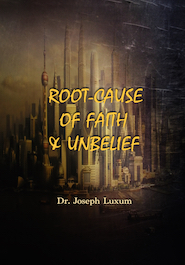[2Kings 2:6-14] Then Elijah said to him, “Please stay here, for the LORD has sent me to the Jordan.” And he said, “As the LORD lives, and as you yourself live, I will not leave you.” So the two of them went on.
[7] Now fifty men of the sons of the prophets went and stood opposite them at a distance, while the two of them stood by the Jordan. [8] Elijah took his mantle and folded it together and struck the waters, and they were divided here and there, so that the two of them crossed over on dry ground.
[9] When they had crossed over, Elijah said to Elisha, “Ask what I shall do for you before I am taken from you.” And Elisha said, “Please, let a double portion of your spirit be upon me.” [10] He said, “You have asked a hard thing. Nevertheless, if you see me when I am taken from you, it shall be so for you; but if not, it shall not be so.” [11] As they were going along and talking, behold, there appeared a chariot of fire and horses of fire which separated the two of them. And Elijah went up by a whirlwind to heaven. [12] Elisha saw it and cried out, “My father, my father, the chariots of Israel and its horsemen!” And he saw Elijah no more. Then he took hold of his own clothes and tore them in two pieces. [13] He also took up the mantle of Elijah that fell from him and returned and stood by the bank of the Jordan. [14] He took the mantle of Elijah that fell from him and struck the waters and said, “Where is the LORD, the God of Elijah?” And when he also had struck the waters, they were divided here and there; and Elisha crossed over.
AMMAN, Jordan: Substantial new evidence from archaeological excavations may have located where Jesus was baptized. Scholars long identified Jesus' baptism as taking place at the lower reaches of the Jordan River, east of Jericho - prompted by a combination of biblical references, Byzantine and other mediaeval texts, and the uninterrupted traditions of the Greek Orthodox Church, which has custody of the area.
Following the 1994 Jordan-Israel peace agreement, archaeologists promptly resumed the search for the place the Bible called "Bethany beyond the Jordan." That search had begun over a century earlier.
In a region of some 8 square kilometers on the east bank of the Jordan River, archaeologists have identified and examined over 30 different archaeological remains. Numerous artifacts confirm the area was inhabited in the Early Roman period, the time of Jesus and John the Baptist.
Located some 11 kilometers north of the Dead Sea shore, about a 40-minute drive from Amman, Bethany beyond the Jordan is fast becoming a major new destination for Christian pilgrims.
The key discoveries are the Byzantine monastery and earlier Roman-era remains at Tell al-Kharrar; several smaller Byzantine churches, chapels, monks' hermitages, caves, and hermit cells; a large Byzantine multi-church complex; a ceramic pipeline bringing water to the site from several kilometers east; a large plastered pool and adjacent khan halfway between Tell al-Kharrar and the Jordan; another pilgrims' rest station and khan several kilometers east, on the ancient pilgrimage route to Mount Nebo.
The discoveries have excited archaeologists and biblical geographers alike. This seems the only site where textual, archaeological and traditional evidence converge.
The puzzle about the precise site of Jesus' baptism is complicated by several factors: the different ancient names used to designate the area, the imprecise narrative in the biblical text, and the different modern sites where pilgrims commemorate the baptism.
John 1:28 explicitly names "Bethany beyond the Jordan, where John was baptizing" as the location - though John is unclear as to whether the itinerant preacher was passing through, or lived there on a semi-permanent basis. John 10:40 mentions Jesus' escaping Jerusalem and going "away again across the Jordan to the place where John at first baptized ..."
This place where Jesus found refuge on the east bank of the Jordan seems to be Bethany beyond the Jordan.
The main mound at Tell al-Kharrar has long been called Elijah's Hill, Tell Mar Elias in Arabic. This reflects its identification as the place from where the Prophet Elijah ascended to heaven (2 Kings 2:5-14). Today the area is called Al-Maghtas, "the place of baptism" or "of immersion."
It is clear that John the Baptist came to this place (Wadi el-Kharrar) where Elijah had come before him and had been caught up to heaven. So John chose this place and began to act in the spirit and power of Elijah. Though it should be emphasized that John the Baptist was not Elijah (Jn 1:21), he was the voice of one “crying in the wilderness.”
The Roman remains discovered during the excavations indicate a considerable settlement near Wadi el-Kharrar. The area was known to pilgrims and many people started visiting the area, reaching a high point during the Byzantine period.
This site is ever since considered to be the birthplace of Christianity and fittingly so.
FROM THE LOWEST TO THE HIGHEST
The Dead Sea valley is the lowest place on earth. Elijah was taken from that same spot where some 1000 years later John the Baptist baptized Jesus. From the lowest place we ascend to God's heights. One must be converted and become like a child. God chooses the low places to draw us up to Himself. [Matthew 18:4] Whoever then humbles himself as this child, he is the greatest in the kingdom of heaven. [Matthew 23:12] Whoever exalts himself shall be humbled; and whoever humbles himself shall be exalted.
ABOUT HEAVEN
Traditionally, we have grown accustomed to believe, like the ancients did, that heaven (Hebrew, HASHAMAI'EEM) is above us. Hebrew uses one word for sky and heaven, only Hashamai'eem is plural for heavens; hence, Paul's allusion to the third heaven (2Corinthians 12:2). We do not know if there are three or seven heavens, but plurality speaks of endlessness. For example, mercy, in Hebrew (RAHAMEEM) is plural, mercies; hence, David wrote in Psalms (136) that God's (lovingkindness) mercies are endless, eternal or everlasting. Anything plural in Hebrew may denote endlessness and therefore eternity.
As an additional note, the Old Testament (The Tanakh) was written without tenses. God speaks from the present and from timeless eternity.
Please also note that the location of heaven is not among stars, or is it the cosmos, it is within us, among us and it comes when we speak the words of the truth. Also note the verse at the start of this article. Whirlwind obscured Elisha's view just as the cloud obscured the view of disappearing Jesus who was crossing over to heaven. The Kingdom of Heaven, Kingdom of God, or heaven are all one and the same - spiritual realm (God is Spirit - John 4:22-24) from which we stepped out and stepped into this physical world. It was up to God when we stepped out of God's realm and now it is up to us how we will exit matter.
[Acts 1:9:11] And after He had said these things, He was lifted up while they were looking on, and a cloud received Him out of their sight. [10] And as they were gazing intently into the sky while He was going, behold, two men in white clothing stood beside them. [11] They also said, “Men of Galilee, why do you stand looking into the sky? This Jesus, who has been taken up from you into heaven, will come in just the same way as you have watched Him go into heaven.”
They kept on looking up even though Jesus was no longer visible. Our farfetched minds often wander away from the here and now. Our faith has become mystical and God wants to change it, even now. Our education in the Truth must start somewhere. Why not right now?
After I have written books and this blog-post I came upon TIME'S special edition about heaven. The author is Jewish. Sometimes it seems as if he actually has read my stuff. But then he rambles in circles citing many beliefs as if beliefs are so important. Anyone who studied knowledge knows; and anyone who believes does not know, but believes. Based on what? The laziness in acquiring the knowledge of God is often replaced with a cop-out-belief because the knowledge we supposed to get is hijacked by another religion. One then goes into camps, Jewish, Christian or Muslim and sorts out things as to believes what and why. That's not knowledge that's escapism.
STUDY GOD
The Bible (the Tanakh), which was before Christianity, or Islam; has enough of information about heaven and the afterlife, if one wants to use this term. (I am not speaking about what Judaism beliefs or teaches here.) The Bible speaks of the overcoming life and of the possibility of never dying; physically or otherwise. All one needs to do is read between the lines with the right spirit; and that spirit is the spirit of God's Logic and never man's.
You may ask me "do you know this, and do you really read between the lines, are you sure?" My answer is: "Yes." If so, you may ask me again, "Can I test you?" The answer again is "Yes you can and will prove it to you." But be warned, it may take some time. If you have the patience to wait for me to explain it all to you in detail, and your mind is able to grasp it all; then I am ready.
But are you ready?
It is clear that John the Baptist came to this place (Wadi el-Kharrar) where Elijah had come before him and had been caught up to heaven. So John chose this place and began to act in the spirit and power of Elijah. Though it should be emphasized that John the Baptist was not Elijah (Jn 1:21), he was the voice of one “crying in the wilderness.”
The Roman remains discovered during the excavations indicate a considerable settlement near Wadi el-Kharrar. The area was known to pilgrims and many people started visiting the area, reaching a high point during the Byzantine period.
This site is ever since considered to be the birthplace of Christianity and fittingly so.
[Source:
http://www.dailystar.com.lb/Culture/Art/2005/May-20/94909-have-jordanian-archaeologists-found-the-place-jesus-was-baptized.ashx#ixzz31WikWo7d
(The Daily Star, Lebanon News, http://www.dailystar.com.lb)]
FROM THE LOWEST TO THE HIGHEST
The Dead Sea valley is the lowest place on earth. Elijah was taken from that same spot where some 1000 years later John the Baptist baptized Jesus. From the lowest place we ascend to God's heights. One must be converted and become like a child. God chooses the low places to draw us up to Himself. [Matthew 18:4] Whoever then humbles himself as this child, he is the greatest in the kingdom of heaven. [Matthew 23:12] Whoever exalts himself shall be humbled; and whoever humbles himself shall be exalted.
ABOUT HEAVEN
Traditionally, we have grown accustomed to believe, like the ancients did, that heaven (Hebrew, HASHAMAI'EEM) is above us. Hebrew uses one word for sky and heaven, only Hashamai'eem is plural for heavens; hence, Paul's allusion to the third heaven (2Corinthians 12:2). We do not know if there are three or seven heavens, but plurality speaks of endlessness. For example, mercy, in Hebrew (RAHAMEEM) is plural, mercies; hence, David wrote in Psalms (136) that God's (lovingkindness) mercies are endless, eternal or everlasting. Anything plural in Hebrew may denote endlessness and therefore eternity.
As an additional note, the Old Testament (The Tanakh) was written without tenses. God speaks from the present and from timeless eternity.
[Acts 1:9:11] And after He had said these things, He was lifted up while they were looking on, and a cloud received Him out of their sight. [10] And as they were gazing intently into the sky while He was going, behold, two men in white clothing stood beside them. [11] They also said, “Men of Galilee, why do you stand looking into the sky? This Jesus, who has been taken up from you into heaven, will come in just the same way as you have watched Him go into heaven.”
They kept on looking up even though Jesus was no longer visible. Our farfetched minds often wander away from the here and now. Our faith has become mystical and God wants to change it, even now. Our education in the Truth must start somewhere. Why not right now?
After I have written books and this blog-post I came upon TIME'S special edition about heaven. The author is Jewish. Sometimes it seems as if he actually has read my stuff. But then he rambles in circles citing many beliefs as if beliefs are so important. Anyone who studied knowledge knows; and anyone who believes does not know, but believes. Based on what? The laziness in acquiring the knowledge of God is often replaced with a cop-out-belief because the knowledge we supposed to get is hijacked by another religion. One then goes into camps, Jewish, Christian or Muslim and sorts out things as to believes what and why. That's not knowledge that's escapism.
STUDY GOD
The Bible (the Tanakh), which was before Christianity, or Islam; has enough of information about heaven and the afterlife, if one wants to use this term. (I am not speaking about what Judaism beliefs or teaches here.) The Bible speaks of the overcoming life and of the possibility of never dying; physically or otherwise. All one needs to do is read between the lines with the right spirit; and that spirit is the spirit of God's Logic and never man's.
You may ask me "do you know this, and do you really read between the lines, are you sure?" My answer is: "Yes." If so, you may ask me again, "Can I test you?" The answer again is "Yes you can and will prove it to you." But be warned, it may take some time. If you have the patience to wait for me to explain it all to you in detail, and your mind is able to grasp it all; then I am ready.
But are you ready?






















Post a Comment